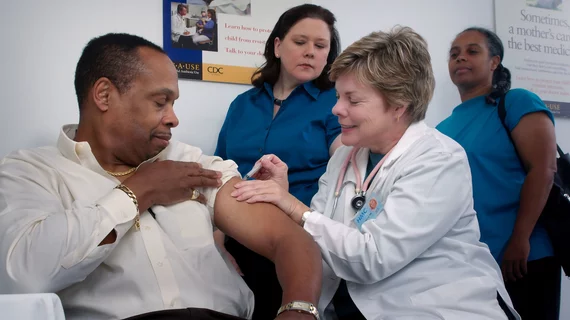Tracking the health benefits of influenza vaccines: ‘If you have heart failure, you should get your flu shot’
Flu shots are associated with a significant reduction in the risk of cardiovascular complications or pneumonia in patients with heart failure, according to new findings published in The Lancet Global Health.[1]
“If you have heart failure, you should get your flu shot because it can save your life—that is what we found in this study,” principal investigator Mark Loeb, MD, MSc, a professor with the division of infectious diseases at McMaster University, said in a prepared statement. “It is underappreciated that the influenza vaccine can save people from cardiovascular death.”
Loeb et al. examined data from more than 5,000 heart failure patients throughout Asia, the Middle East and Africa. Patients were randomly assigned to receive either an influenza vaccine or a placebo annually from June 2015 to November 2021. The group was focused on this patient population due to the known links between heart failure and poor outcomes.
The study’s primary composite outcome focused on cardiovascular death, non-fatal myocardial infarction and non-fatal stroke. While patients who received an influenza vaccine were associated with a reduction in this composite outcome compared to patients who received a placebo—14.8% vs. 16%—the difference was not large enough to be viewed as clinically significant.
However, the authors did find that receiving a flu shot reduced a patient’s risk of pneumonia by 42% and their risk of hospitalization by 16%. Also, flu shots helped reduce the number of patient deaths during flu season by approximately 20%.
“The flu shot should be part of the standard practice in people with heart failure given how simple, inexpensive and safe it is,” co-author Salim Yusuf, MD, BS, DPhil, another professor with McMaster University, said in the same statement. “Avoiding one sixth of deaths from heart disease and preventing hospitalizations makes it very cost effective and that can have an important public health and clinical impact.”

